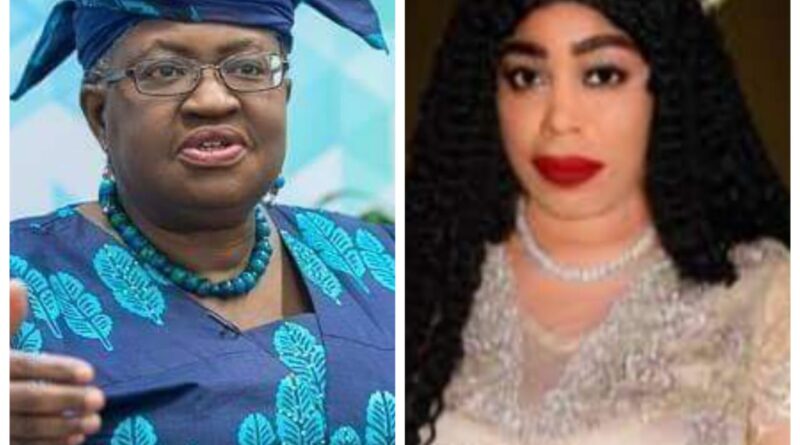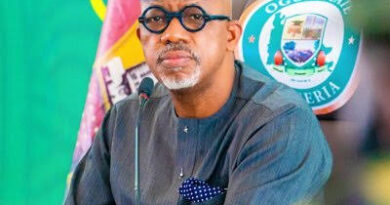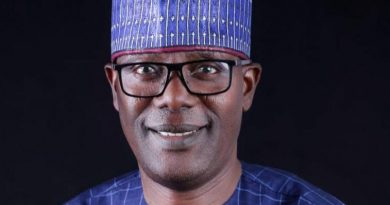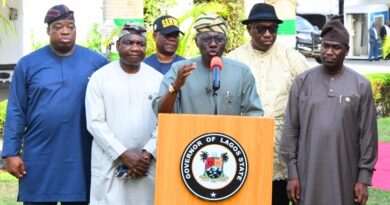Opinion: Imperative Of Women’s Involvement In Tinubu’s Administration….By Akanji Ismail Esq
Gender equality and women’s empowerment have emerged as crucial issues in contemporary society. Despite significant progress, women continue to face numerous challenges in various spheres of life, particularly in the domain of politics and governance.
However, the need for women’s active involvement in governance is not merely a matter of equality but also a crucial element for achieving sustainable development, inclusive decision-making, and social progress. One of the fundamental reasons for women’s involvement in governance is to enhance representation and diversity. Governments that lack gender balance often fail to adequately address the needs and concerns of half their population. Including women in decision-making processes brings diverse perspectives, experiences, and insights to the table. This diversity enriches policy discussions, leads to more comprehensive decision-making, and fosters inclusive policies that benefit all members of society.
Gender equality remains an elusive goal in many countries, including Nigeria. By increasing women’s participation in governance, we can strive towards achieving gender equality more effectively. Women in positions of power and influence can drive policy reforms and advocate for gender-responsive legislation, addressing issues such as pay gaps, gender-based violence, reproductive rights, and access to education and healthcare. Often time, Nigerian Women have been accused of not adequately participating in politics, especially at those level, where there being in government, can translate to positive impact and further affirm, their capability in leadership. But, sadly, the political parties have continued to constitute themselves as stumbling blocks, to women participation in Nigeria politics.
For instance, only the Allied Peoples Movement (APM), produced a Female Presidential Candidate, in person of, Princess ChiChi Ojei, whom despite all hurdles, ran the race against the All Men Candidates of the seventeen other political parties.
For the sake of those, who may be unaware, the participation of Princess Ojei, in the 2023 Presidential Election, was not just another in the usual attempt, by Women to participate in Politics.
Princess Chichi Ojei, came into the race, with an intimidating profile, which at some point, rattled the main opposition party in the country, the Peoples Democratic Party (PDP) not only to prevent her from flying the party’s ticket, but also sponsored rumours of her withdrawal from the race, as the candidate of the APM, in support of the PDP. Though young in age, Ojei possesses an intimidating credential, which stood her out, among many of the Presidential candidates, as a visionary and astute administrator. She is in the class of the uncommon generation of Women, who are financial strategist, spanning the over 20years of experience. She is a rare breed Nigerian, as well as an articulate business entrepreneur. Her ideals and driving passion encompass diverse range of our national spheres, such as social justice, nation building, people centered domestic and foreign policies and empowering society’s vulnerable entities. Recall, that during the administration of President Goodluck Jonathan in Nigeria from 2010 to 2015, there was a notable emphasis on women’s involvement and empowerment in various sectors of the government.
President Jonathan recognized the importance of gender equality and worked towards increasing women’s representation and participation at all levels of governance. President Jonathan appointed several women to ministerial and other key positions, recognizing their competence and potential to contribute to national development. Notable among the women who served in his government is the current President of the World Trade Organisation (WTO) Dr. Ngozi Okonjo-Iweala, who served as the Minister of Finance and Coordinating Minister for the Economy.
Beyond ministerial appointments, President Jonathan’s administration also appointed women to leadership positions in different governmental agencies and parastatals. These appointments were aimed to provide women with opportunities to influence policies, contribute their expertise, and take part in decision-making processes.Moreover, their presence in governance serves as an inspiration and empowers other women and girls to pursue leadership roles, challenging traditional gender norms and stereotypes.
Women’s involvement in governance is crucial for addressing the unique concerns and challenges they face. Women’s experiences, such as discrimination, violence, and inequality, often differ from those of men. Without adequate representation, these issues may be overlooked or inadequately addressed in policy-making. Women in governance can champion gender-specific policies, allocate resources for women’s empowerment programs, and work towards dismantling systemic barriers that hinder women’s progress.The need for women’s involvement in governance is not only a matter of justice but also an imperative for sustainable development and social progress. By increasing women’s representation, we can enhance diversity, promote gender equality, address women’s unique concerns, create inclusive policies, and improve the overall quality of governance.
Empowering women to participate in decision-making processes is an investment in a more equitable and prosperous future for all. It is time, for Nigeria, to recognize and embrace the transformative potential of women’s leadership in governance and work towards building inclusive societies that benefit from the talents and perspectives of both men and women.
Without gainsaying, the emerging indications, particularly judging by the antecedent of President Bola Tinubu, shows the readiness to actively engage the women, in the pursuit of his administration’s Agenda.
The appointments by the administration, in the past few days, signals a departure, from the posture of government, under the immediate past administration.While these efforts are being demonstrated, a commitment to women’s involvement in the government, challenges and limitations must be pursued.
Achieving gender parity in political representation and addressing deep-rooted gender inequalities required sustained efforts beyond a single administration, and it is hoped, that President Bola Tinubu, will show more commitment, to women’s involvement and empowerment in governance in Nigeria, setting a precedent for future administrations to build upon.
Barrister Akanji Ismail is a Legal Practitioner and Public Policy Analyst. He sends in this piece from Ikoyi, Lagos.




